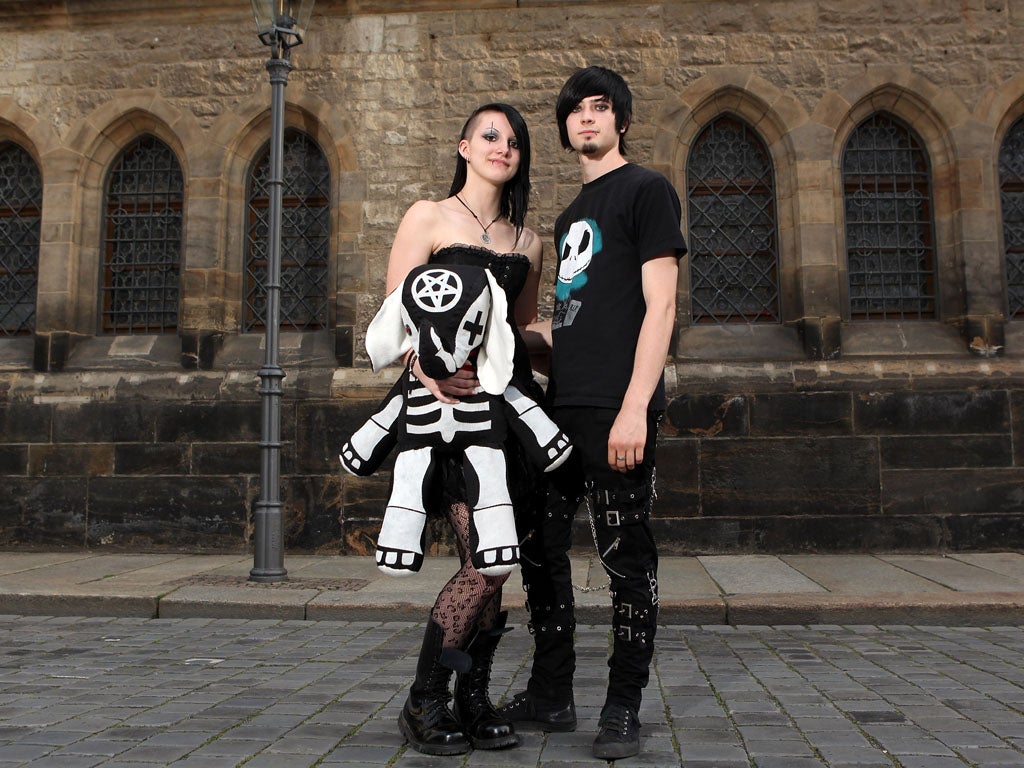It’s wrong to beat up someone for being a goth, but wasn’t it always?
This new definition is distracting because it empowers busybodies to continue patrolling the boundaries of identity

Your support helps us to tell the story
From reproductive rights to climate change to Big Tech, The Independent is on the ground when the story is developing. Whether it's investigating the financials of Elon Musk's pro-Trump PAC or producing our latest documentary, 'The A Word', which shines a light on the American women fighting for reproductive rights, we know how important it is to parse out the facts from the messaging.
At such a critical moment in US history, we need reporters on the ground. Your donation allows us to keep sending journalists to speak to both sides of the story.
The Independent is trusted by Americans across the entire political spectrum. And unlike many other quality news outlets, we choose not to lock Americans out of our reporting and analysis with paywalls. We believe quality journalism should be available to everyone, paid for by those who can afford it.
Your support makes all the difference.Who are you? Deep inside your soul? Naturally, I don’t give a monkey’s, but Greater Manchester Police service has taken an interest. It will be the first force in Britain to treat offences against “goths, emos, punks and metallers” as hate crimes, adding these subcultures to a list that acknowledges discrimination based on race, religion, disability, sexual orientation and transgender identity.
This new approach was motivated by the 2007 murder of 20-year-old Sophie Lancaster, kicked to death “because” she dressed as a goth. Sophie’s mother, who has campaigned for the change of policy, called it a “validation of the work we have undertaken”, and she deserves that validation. It should be said out loud, as many times as it takes: it is not acceptable to attack someone because of who they are. Or, more accurately, who the perpetrator has decided they are.
Those who think hate-crime legislation unnecessary will point out that murder is already unacceptable, whatever the motivation. This is true. It’s also true that Sophie Lancaster’s murder and other such crimes are different. The difference is one of attitude not behaviour – a distinct and depressingly moronic attitude – and our courts aren’t equipped to judge attitude. Hate-crime legislation is useful as an acknowledgement that it is wrong, but can’t do much to change it.
Don’t worry that GMP’s ever-expanding list of potential hate victims will conjure into existence hitherto unknown crimes. Unfortunately, hate crime is very real. Worry, instead, that this new definition is distracting, not helpful, because it empowers busybodies to continue patrolling the boundaries of identity. It’s an open invitation to debate the difference between the people we can’t help being – can you help liking heavy metal music? Can you help walking “gay”? – and the people we could help being if only we had the decency to try. Surely the point is, you don’t have to try. I assert my right to wave my freak flag to the beat of my own drum like the special snowflake I am etc. etc. without anybody beating me up for it. Who cares what form that takes?
Equality is not a competition to see who’s got the longest form with the most tick boxes on it. The purpose of equality legislation is not to detail the superficial traits that separate us, it’s to assert the fundamental rights we have in common. It’s commendable that Manchester Police force wants to uphold these rights for everybody, it’s just a shame it’s allowed itself to be dragged into the fools’ game of defining who “everybody” is. The clue is in the question.
George Osborne, Mockney rebel
Some people like an Irish accent, some people feel comforted by a Yorkshire burr, personally the accent I warm to most is a Mockney, as exhibited by the Chancellor this week. Whatever the Mockney accent is saying, what it really says is: “Yes, I’m more powerful than you, I own the land, the means of production and dominate the organs of state, but, humble common person, I will cede to you “cool”. You get to always be cooler than me. How’s that?” Say what you like about Osborne’s attitude to the less fortunate, but as long as he feels compelled to defend cuts in an accent Dick Van Dyke would call dodgy, there must be one decent bone left in his body. Somewhere near the larynx.
Twitter: @MsEllenEJones
Join our commenting forum
Join thought-provoking conversations, follow other Independent readers and see their replies
Comments